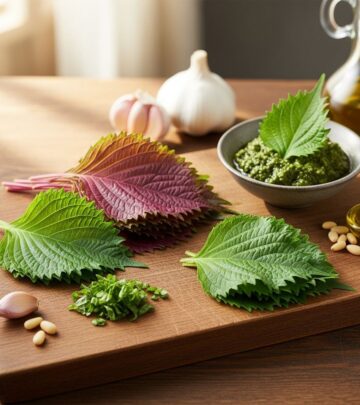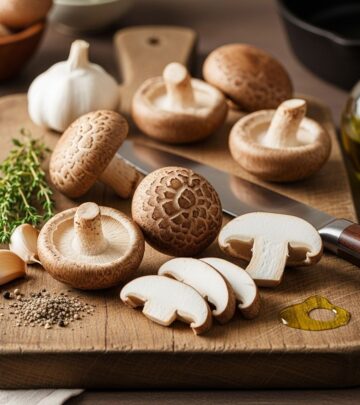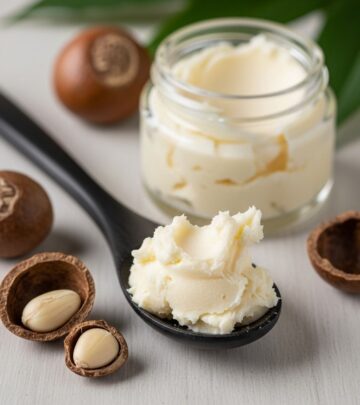Top 10 Effective Home Remedies for Wet Cough: Natural Relief and Care
Soothing kitchen staples combine to thin phlegm and quiet persistent chest irritation.

Wet cough, also known as a productive cough, is characterized by the presence of mucus or phlegm in the respiratory tract. While coughing plays a vital role in helping the body clear excess mucus and irritants, persistent or bothersome symptoms can impact daily life. Fortunately, a range of natural home remedies can alleviate discomfort, ease coughing, and promote quicker recovery. This guide examines the most effective, research-backed home treatments to help you manage a wet cough safely and comfortably.
What Is a Wet Cough?
A wet cough is a natural reflex action that helps clear the airways of fluid (phlegm) or secretions due to infections, irritants, or other respiratory issues. Unlike a dry cough, a wet cough is usually accompanied by mucus production, which may vary in color and consistency. Wet coughs are often symptoms of:
- Common colds and flu
- Bronchitis
- Pneumonia
- Sinus infections
- Asthma or allergies
- Exposure to pollutants or smoking
While most acute wet coughs resolve as the underlying condition improves, persistent or severe cases may require medical attention.
10 Best Home Remedies for Wet Cough
Natural remedies aim to thin mucus, soothe the throat, support the immune system, and reduce irritation. Always consult with your doctor before starting any new remedy, especially for children, pregnant individuals, or those with chronic conditions.
1. Honey
Honey is widely recognized for its antimicrobial and soothing properties. It coats the throat, eases irritation, and helps suppress coughing reflexes. Scientific studies have shown honey can be just as effective as some over-the-counter cough medicines for relieving cough frequency and intensity.
- Mix 1–2 teaspoons of raw or manuka honey with warm water or herbal tea.
- Add a squeeze of lemon juice for extra vitamin C and flavor.
- Do not give honey to children under 1 year of age due to the risk of infant botulism.
2. Steam Inhalation
Steam inhalation is a time-tested method to loosen mucus and ease chest congestion. The moist, warm air helps reduce the thickness of phlegm, making it easier to expel.
- Take a hot shower and inhale the steam for 10–15 minutes.
- Alternatively, lean over a bowl of hot water with a towel draped over your head and breathe in the vapor.
- Adding a drop or two of eucalyptus or peppermint oil can enhance benefits, but avoid strong oils with children or those with asthma.
3. Saltwater Gargle
Gargling with warm salt water helps kill bacteria and loosen mucus from the throat, reducing cough frequency and throat irritation.
- Dissolve half a teaspoon of salt in a cup of warm water.
- Gargle for 30 seconds, then spit out. Repeat 2–3 times daily.
- Not suitable for very young children who cannot gargle safely.
4. Ginger
Ginger contains natural anti-inflammatory and expectorant compounds that help relax airway muscles and break down mucus. It can be used as a tea, syrup, or added to food.
- Simmer fresh ginger slices in boiling water for 10 minutes; strain and drink warm with honey or lemon.
- Chew a small, peeled piece of ginger or use ginger lozenges as needed.
5. Peppermint
Peppermint leaves contain menthol, a compound known for decongestant and soothing effects. Menthol relaxes the muscles of the respiratory tract and makes breathing easier.
- Drink peppermint tea or inhale peppermint steam during a hot shower.
- Apply peppermint oil-based chest rubs (avoid direct application to broken skin or children under 2).
6. Hydration
Staying well-hydrated is vital during any respiratory illness. Fluids help thin mucus, making it easier to expel and soothe an irritated throat.
- Drink water, clear broths, herbal teas, or diluted fruit juices throughout the day.
- Avoid dehydration—ensure you consume at least 8–10 glasses of liquids daily, unless restricted by a doctor.
7. Humidifier Use
A humidifier increases air moisture, preventing the throat and nasal passages from drying out. This can help relieve coughing and congestion, especially in arid climates or during winter.
- Use a clean, cool-mist or warm-mist humidifier in your bedroom, especially at night.
- Clean your humidifier regularly to prevent mold and bacteria growth.
8. Herbal Teas (Thyme, Licorice Root, Ivy Leaf)
Herbs like thyme, licorice root, and ivy leaf are traditional remedies for productive coughs. They contain compounds that act as natural expectorants and throat soothers.
- Thyme tea: Steep 1–2 teaspoons of dried thyme in a cup of hot water for 5–10 minutes. Strain and drink.
- Licorice root or ivy leaf teas are similarly prepared. Use caution if you have high blood pressure (licorice root can raise it).
9. Dietary Adjustments
Eating the right foods can bolster recovery and reduce throat irritation:
- Consume warm, soft foods (soups, broths, mashed vegetables).
- Avoid cold, fried, or heavily processed foods that may increase mucus production or throat irritation.
- Include citrus fruits and berries for vitamin C and immune support (unless citrus aggravates your throat).
10. Rest and Elevation
Getting adequate rest allows your immune system to fight infections more efficiently. Elevating the head during sleep reduces nighttime coughing and mucus buildup.
- Prop up your head with extra pillows.
- Take naps during the day if needed to support recovery.
Popular Homemade Cough Syrups for Wet Cough
| Syrup | Main Ingredients | Benefits | Precautions |
|---|---|---|---|
| Onion & Honey Syrup | Onion slices, raw honey | Antimicrobial Thins mucus Soothes throat | Do not use for children under 1 year; not suitable for honey allergies. |
| Garlic & Honey Syrup | Fresh garlic, honey | Antibacterial Boosts immunity Eases cough | Avoid with allergies; too much raw garlic can irritate stomach. |
| Carrot Syrup | Carrot, lemon juice, brown sugar, honey | Soothes throat Adds vitamins Mild expectorant | Use in moderation with diabetes; not for infants. |
| Guaco and Pennyroyal Syrup | Pennyroyal leaves, guaco, brown sugar, water | Expectorant Anti-inflammatory Bronchodilator | Not suitable for children under 2, pregnant or breastfeeding women, or those with certain medical conditions. |
When to Seek Medical Attention
- Persistent cough lasting more than 3 weeks
- High fever, shortness of breath, or chest pain
- Coughing up blood or thick green/yellow sputum
- Pre-existing chronic lung disease (e.g., COPD, asthma)
- Cough in infants, elderly, or immunocompromised individuals
These may indicate a more serious underlying condition requiring professional evaluation.
Tips for Safe and Effective Home Remedy Use
- Always consult your healthcare provider before using home remedies, especially with chronic illness, allergies, pregnancy, or for children.
- Use only high-quality, fresh ingredients.
- Avoid remedies with known allergens, and monitor for any adverse reactions.
- Don’t discontinue prescribed medications or therapies without medical guidance.
Frequently Asked Questions (FAQs)
Q: How long does a wet cough usually last?
A: Most wet coughs from cold or mild infection resolve within 1–3 weeks. Coughs lasting longer may signal a chronic or serious condition.
Q: Can I use honey for my child’s cough?
A: Yes, but only for children over 1 year old. Honey is not safe for infants under 12 months.
Q: Are there foods to avoid with a wet cough?
A: Avoid cold drinks, fried foods, dairy (if it worsens your mucus), and any foods that cause throat irritation.
Q: Is it safe to use herbal teas along with my medications?
A: Herbal teas are generally safe, but some herbs (like licorice root) may interact with medications or raise blood pressure. Consult your doctor first.
Q: When should I see a doctor for a wet cough?
A: Seek prompt medical attention if your cough is persistent, severe, or accompanied by fever, chest pain, shortness of breath, or blood-tinged sputum.
Wet Cough Prevention Tips
- Wash your hands frequently to reduce infections.
- Avoid exposure to smoke, allergens, and pollutants.
- Stay up-to-date with recommended vaccinations (e.g., flu, pneumonia).
- Adequate hydration, healthy eating, and regular rest support strong immunity.
Takeaway
Wet coughs, while uncomfortable, often resolve with supportive care and safe, natural remedies. Honey, steam, herbal teas, dietary adjustments, and proper hydration are among the most effective home-based options. Always prioritize safety, monitor for warning symptoms, and seek medical care if your cough becomes severe or persists.
References
- https://www.tuasaude.com/en/homemade-cough-syrup/
- https://www.healthline.com/health/natural-cough-expectorants-cough
- https://www.businessinsider.com/guides/health/conditions-symptoms/how-to-stop-coughing
- https://www.stylecraze.com/articles/wet-cough-home-remedies/
- https://www.stylecraze.com/author/sanchari_bhattacharya/
- https://health.clevelandclinic.org/how-to-stop-coughing
- https://www.youtube.com/watch?v=Y9SEpuLPT04
Read full bio of medha deb












